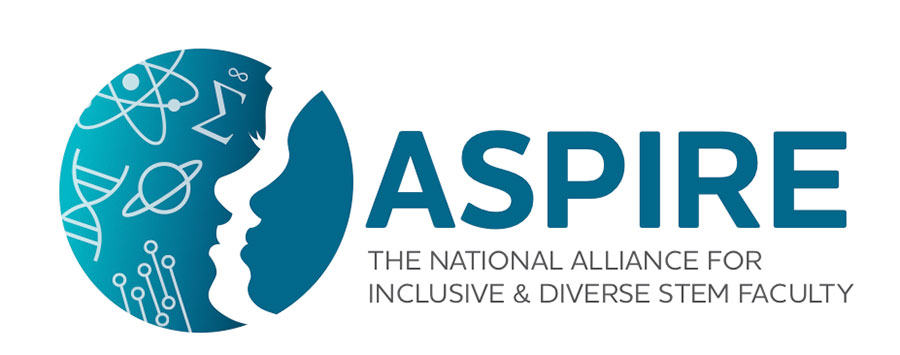
Florida State University is one of 15 public research universities selected to participate in the National Science Foundation-funded INCLUDES Alliance inaugural three-year institutional change effort to improve recruitment, hiring and retention practices.
“Aspire: The National Alliance for Inclusive & Diverse STEM Faculty” is aimed at ensuring all STEM faculty use inclusive teaching practices and that institutions increase the diversity of their STEM professors.
“We are thrilled that FSU was selected to be in the first cohort of universities to participate in the IChange Network,” said Janet Kistner, vice president for Faculty Development and Advancement. “Enhancing diversity and inclusion on our campus is prominently featured in FSU’s strategic plan. The opportunity to work together with other universities to develop and implement initiatives designed to increase STEM faculty diversity will help us to achieve this goal.”
Florida State and the other participating universities will begin their work with a self-assessment of their current practices and resources. The schools will then develop and implement an action plan for initial change and map ways to scale such efforts across all their STEM programs.
Joining FSU in this initiative are: California State University, Northridge; Cleveland State University; Georgia State University; Montana State University; Indiana University-Purdue University Indianapolis; University of California, Irvine; University of Central Florida; University of Houston; University of Illinois; University of Oregon; University of South Carolina; the University of Texas at San Antonio; University of Vermont; and University of Wisconsin-Madison. The Aspire Alliance intends to expand over the next two years by adding 50 universities.
The Aspire Alliance is led by the Association of Public and Land-grant Universities (APLU) and the Center for the Integration of Research, Teaching, and Learning, based at the University of Wisconsin – Madison.
The alliance will engage the inaugural cohort of 15 universities to launch its IChange Network, which will provide participating institutions with comprehensive support and resources for institutional change that includes access to national partners who can offer concierge-style technical assistance.
Working with participating institutions as a community of transformation, the IChange Network will provide access to an institutional self-assessment for inclusive faculty hiring developed by the APLU, a leadership institute to assist with professional development for existing faculty from underrepresented groups, and a competitive funding program to foster new campus-based initiatives to diversify STEM faculty.
“We are just getting started, but the excitement among FSU and these other participating universities is palpable,” said Travis York, APLU’s assistant vice president for Academic and Student Affairs and co-leader of the IChange Network. “Everyone realizes the potential to have STEM faculty and the students in those programs be more reflective of the diversity of the nation.”
While focused on diversifying faculty, the Aspire Alliance’s ultimate goal is to attract underrepresented students — women, members of minority racial and ethnic groups, persons with disabilities, and those from low socioeconomic backgrounds — into STEM programs, retain them, and help them graduate and succeed in a modern STEM workforce.
Efforts to increase underrepresented faculty have not been as successful as intended, particularly in STEM. A 2015 analysis by the National Science Foundation revealed that underrepresented minority faculty occupied only 8 percent of associate and full professorships in STEM fields at four-year institutions. Data show when underrepresented students are taught by diverse faculty members they achieve at significantly higher rates — as much as 20 to 50 percent of the course achievement gaps between minority and majority students are eliminated.
The Aspire Alliance will also launch a regional change component that will build collaboratives of two-year colleges, four-year regional universities, local research universities and the private sector. The group will seek national change through partnerships with an array of disciplinary societies, groups that focused on underrepresented students and faculty and professional development organizations to align faculty disciplinary experiences.
Association of Public and Land-grant Universities
APLU is a research, policy, and advocacy organization dedicated to strengthening and advancing the work of public universities in the U.S., Canada, and Mexico. Its membership of 241 public research universities, land-grant institutions, state university systems, and affiliated organizations, includes 46 Hispanic-serving institutions and 23 HBCUs. APLU’s agenda is built on the three pillars of increasing degree completion and academic success, advancing scientific research, and expanding engagement. Annually, member campuses enroll 4.8 million undergraduates and 1.3 million graduate students, award 1.2 million degrees, employ 1.3 million faculty and staff, and conduct $44.9 billion in university-based research.
Center for the Integration of Research, Teaching, and Learning
The Center for the Integration of Research, Teaching, and Learning (CIRTL) seeks to enhance excellence in STEM undergraduate education through development of a national faculty committed to implementing and advancing evidence-based teaching practices for diverse learners. The goal of CIRTL is to improve the STEM learning of all students at every college and university, and thereby to increase the diversity in STEM fields and the STEM literacy of the nation. CIRTL uses graduate education as the leverage point to develop a national STEM faculty committed to implementing and advancing effective teaching practices for diverse student audiences as part of successful professional careers. The CIRTL Network now includes 40 major research universities. CIRTL was founded in 2003 as a National Science Foundation Center for Learning and Teaching in higher education. CIRTL is housed in the Wisconsin Center for Education Research, within the School of Education at the University of Wisconsin – Madison.
This work is supported by the National Science Foundation.




